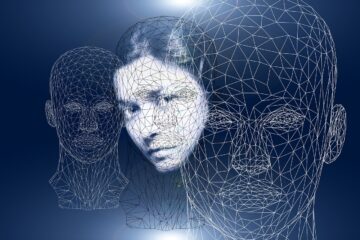What is psychology in the twenty-first century? Even if we ask such a question, people will consider us ignorant and naive. Psychology has gained over the last decade the cleaver of being a guide to the simple to complex problems encountered in everyday life, and that is why the study of psychology has become more popular and useful today than any other natural science.
Industrialization in the early 20th century accelerated urbanization. The chatter of machines has increased and in recent years, as a result of liberalization, privatization, and globalization, even at the individual level, there has been an increase in stress, anxiety, conflict, depression, discord, and strife. In the modern age, a man feels lonely even though he is in a group. Despite all prosperity, one cannot attain happiness. In such a situation, the need for scientific knowledge has arisen to understand the behavior of human beings, recognize their internal affairs, and give them the right direction to lead to peace and prosperity, which is seen to be fulfilled by psychology in modern times. Psychology is poised to play an important role in guiding mankind toward personal and global peace and prosperity.
Definition of Social Psychology:-
Not only is it extremely difficult to fit psychology into a single definition because there are so many areas of behavior, but there are many debates among psychologists about the various theories of psychology. Hence, it would be easy to divide the definition of psychology into two parts, (1) ancient and (2) modern, and thus what is psychology? It will become somewhat clear.
(1) Ancient (old) definition of psychology:
(1) Psychology as the science of the soul:
At the beginning of civilization, when all the sciences were thought around the philosophy of philosophy, the word “Psychology” was used by Fold Gok. Etymologically, the word “Psychology” is derived from the combination of two words “Payche” and “Logos”, in which the word “Psyche” means “soul” and the word “Logos” means science. Hence the early definition of psychology was given as the science of the soul. But this definition has now become unacceptable.
cause:
1 – The existence of the soul cannot be proved by psychologically valid observational or experimental methods. Psychology or any other natural science cannot introduce a subject that is not possible to study as a subject of study.
2 – “Atma is Arupi” – cannot be seen by the senses – is imperceptible. So it cannot be experimented on. The soul cannot be objectively proven even by any controlled observation and hence its research is impossible. Such a thing cannot be included in psychology.
(2) Psychology as the Science of ‘Mind’:
‘Psychology’ was also known for a long time as the science of mind. In Greek philosophy, the word ‘Psyche’ is used to mean both ‘mind’ and ‘soul’, and so some thinkers referred to psychology as the science that studies the mind and mental activity. According to Hoffding, the study of psychology includes cognition, emotion, and activity. All these three things are actions of the mind. But even this definition of psychology we cannot accept for the following reasons.
cause:
1 – Ind, like the Soul, cannot be directly understood. therefore, the mind cannot be a subject of scientific study.
2 – psychology is considered to be the science of mind, external behavior cannot be included in the study of psychology. While modern psychology studies external behavior only.
(3) Psychology as a Science of ‘Consciousness’:
In the late 19th century Wilhelm Wunt (1832-1920), Tichner, and other constructivists considered psychology to be a science of ‘consciousness’. The main task of psychology is to analyze the various components of human-animal consciousness. Thus, according to psychophysicalists and constructivist thinkers including Weber-Fechner, psychology studies realization, sensation, thoughts, will, etc. The following criticism can also be made against this definition.
cause:
1 – The origin and existence of consciousness cannot be fully scientifically explained and explained.
2 – Many individuals can know their self-consciousness. He cannot gain knowledge of the consciousness of others. I can understand my feelings. How can I know what it feels like to be pricked? The goal of science is to gain common knowledge, so science cannot fulfill its goal if it does not have common knowledge about the consciousness of all.
(4) Psychology as a science of ‘behavior’:
Watson (1878), a questioning psychologist of behaviorism after the constructivists, considered psychology to be the science of behavior. According to Watson, psychology should study only those behaviors that can be learned through observation. However, arguments have also been made against Watson’s definition.
cause:
1 – Although Watson considered psychology to be a science of behavior, he was a staunch opponent of mental action and mental perception. However, this belief was exaggerated. Many motivations and attitudes are at work behind behavior.
2 – Human behavior is not merely psychological reflection as Watson and behaviorists believe. Many reasons are responsible for human behavior.
(2) Modern Definition of Psychology:
1 – “Psychology is the science of the activities of the individual in relation to the environment.” – RS Woodworth
2 – The scientific investigation of the mental and spiritual activities of Manovishaya Manuka is honorable.”-Henry E. Garrett
7 – “Psychology is the science of human and animal behavior.” – C. T. Morgan
A general definition based on the above definitions is as follows
(Psychology is a science that studies mental processes, experiences, and behavior in different contexts.)



0 Comments